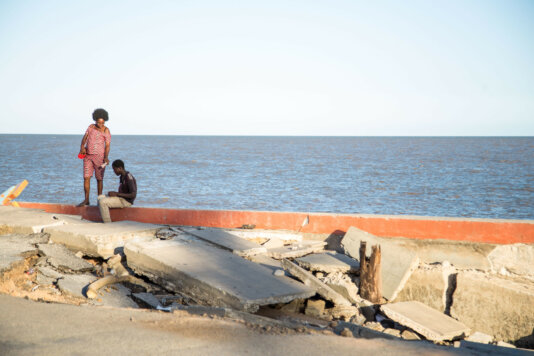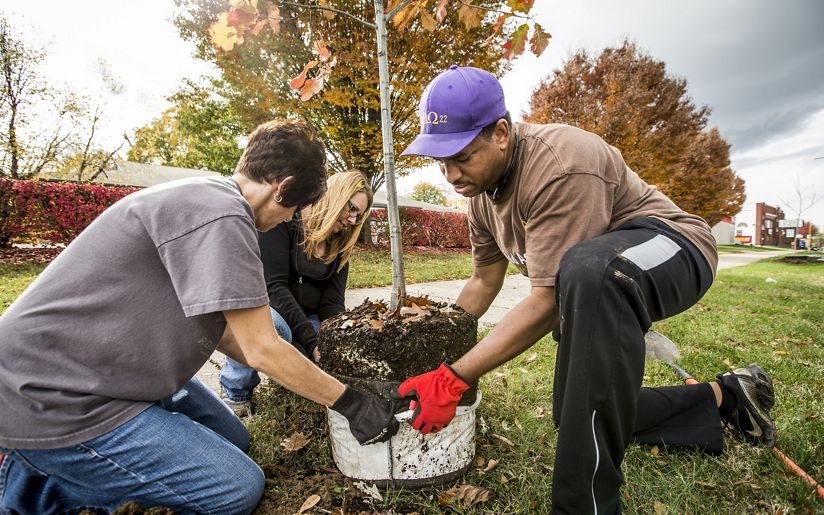- About
- Topics
- Story
- In-Depth
- Picks
- Opinion
- News
- Donate
- Signup for our newsletterOur Editors' Best Picks.Send
Read, Debate: Engage.
| February 06, 2022 | |
|---|---|
| topic: | Climate action |
| tags: | #climate change, #Mozambique, #green city, #Cyclone Idai, #Sustainable Development |
| located: | Mozambique |
| by: | Bob Koigi |
When Cyclone Idai hit Mozambique in 2019, the port city of Beira was one of the most affected. With entire communities submerged, the city was splintered off from the rest of the country and saw tragic rates of deaths and displacement. In the end, 90 percent of the city was destroyed.
When the storm had subsided, the city started to get back on its feet by constructing drainage canals that would tackle the flooding issues and exploring resilient ways of withstanding future calamities.
But in January 2021 another disaster, Cyclone Eloise, had struck the city, destroying more than 4,000 homes, killing a dozen people and directly affecting approximately 160,000 individuals. Although the cyclone was said to be mild, it nonetheless left the city underwater for weeks, and till this day Beira's over 300,000 residents continue to grapple with disasters.
With livelihoods decimated, lives lost and the city at the mercy of the weather, residents decided to take action. With the help of government and development partners, the city that has experienced the harsh impacts of climate change has been looking at sustainable ways of restructuring and rebuilding. Residents have invested in a series of initiatives such as a strong drainage system, green infrastructure meant to absorb floodwaters and nature-based solutions.
Among the flagship greening projects is the Beira Green Park, which sits on 4.5 hectares at the heart of the city.
The $20.7 million project has been chaperoned by the government as part of a larger plan of having infrastructures that are resilient to climate change. As Africa’s largest green urban park, it offers space for relaxation and sports while boosting the city’s drainage system. The green zone has a cycle path, children’s play areas, multi-purpose sports fields and gymnasiums. It also offers areas for tree-planting, as the government explores ways of taming urban pollutions. A 2.7 hectare green area has also been set aside to allow residents to organise urban hikes.
"The city of Beira has set a precedent in Africa on what the future holds for African urban areas at a time when the impacts of climate change continue to be felt across the continent," said Editha Busara, an environmental scientist based in Tanzania. "The aspect of combining environmental conservation and recreation not only gets citizens to understand the devastating impacts of climate change, but gets them to actively be involved in doing something about it. This is a very innovative way of building resilience among urban communities."
And while Mozambique has pioneered the concept in Africa, it has paved the way for African urban planners to explore alternative and innovative ways of designing modern, climate-smart cities that embrace green infrastructure at a time when unprecedented population explosion in urban areas is complicating the matrix.
Wealthy nations have already embraced the green cities concept with remarkable results. China has sponge cities, Netherlands has adopted playgrounds and public squares that ensure flooding doesn’t overwhelm cities and in the US, New York City is boasting its Big U initiative, which insulates the city from hurricanes.
Image by Dominic Chavez/World Bank
By copying the embed code below, you agree to adhere to our republishing guidelines.


